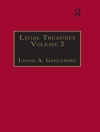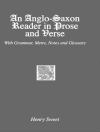Ulysses has been called ‚the most prominent landmark in modernist literature‘, a work where life’s complexities are depicted with ‚unprecedented, and unequalled, linguistic and stylistic virtuosity‘. That style has been stated to be the finest example of the use of stream-of-consciousness in modern fiction, with the author going deeper and farther than any other novelist in handling interior monologue. This technique has been praised for its faithful representation of the flow of thought, feeling, mental reflection, and shifts of mood. Critic Edmund Wilson noted that Ulysses attempts to render ‚as precisely and as directly as it is possible in words to do, what our participation in life is like—or rather, what it seems to us like as from moment to moment we live.‘ Stuart Gilbert said that the ‚personages of Ulysses are not fictitious‘, but that ‚these people are as they must be; they act, we see, according to some lex eterna, an ineluctable condition of their very existence‘. Through these characters Joyce ‚achieves a coherent and integral interpretation of life‘.Ulysses chronicles the peripatetic appointments and encounters of Leopold Bloom in Dublin in the course of an ordinary day, 16 June 1904. Ulysses is the Latinised name of Odysseus, the hero of Homer’s epic poem Odyssey, and the novel establishes a series of parallels between its characters and events and those of the poem (e.g., the correspondence of Leopold Bloom to Odysseus, Molly Bloom to Penelope, and Stephen Dedalus to Telemachus).
James Joyce
Ulysses (Arcadia Classics) [EPUB ebook]
Ulysses (Arcadia Classics) [EPUB ebook]
Dieses Ebook kaufen – und ein weitere GRATIS erhalten!
Sprache Englisch ● Format EPUB ● ISBN 9786050362459 ● Dateigröße 0.7 MB ● Verlag James Joyce ● Erscheinungsjahr 2015 ● herunterladbar 24 Monate ● Währung EUR ● ID 5106232 ● Kopierschutz Soziales DRM












